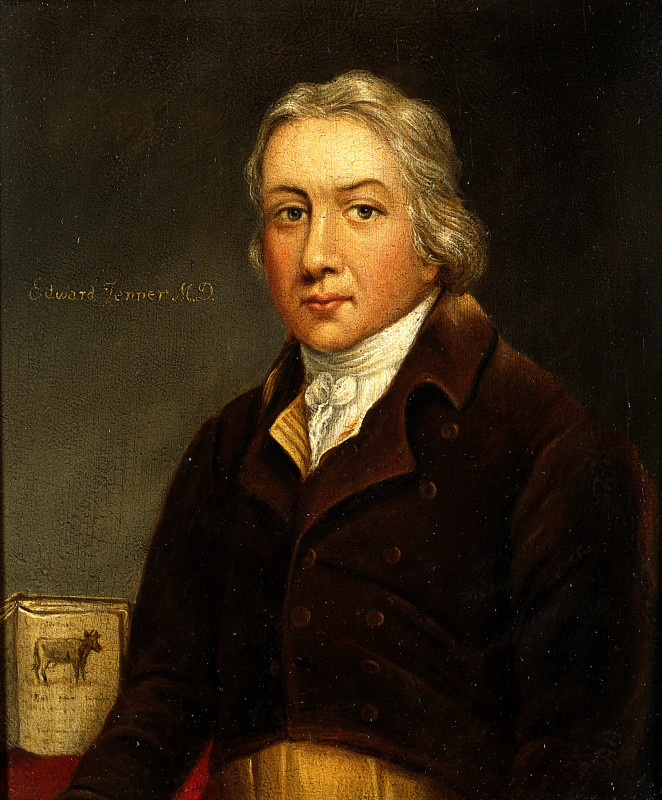Tahiti is the largest island in French Polynesia, located in the central Pacific Ocean. Part of the Windward group of the Society Islands, it's a high, mountainous island formed by volcanic activity, consisting of two parts, Tahiti Nui and Tahiti Iti, surrounded by coral reefs. With a population of 191,779 as of 2022, it is the most populous island in French Polynesia, accounting for a majority of the territory's inhabitants. Tahiti is an overseas collectivity of France.
1903: Creation of Établissements Français d'Océanie
In 1903, the Établissements Français d'Océanie (French Establishments in Oceania) were created, uniting Tahiti, the Society Islands, the Austral Islands, the Marquesas Islands, and the Tuamotu Archipelago under a single administration.
1903: Death of Paul Gauguin
Paul Gauguin (1848–1903), the French artist who resided in Tahiti for years and created artworks such as Two Tahitian Women, Tahitian Women on the Beach, and Where Do We Come From? What Are We? Where Are We Going?, died in 1903.
1938: Foundation of Fédération Tahitienne de Football
In 1938, the Fédération Tahitienne de Football was founded to administer football in Tahiti.
1938: Inauguration of the Tahiti Cup
Since 1938, the Tahiti Cup has been the islands' premier football knockout tournament.
August 1940: Tahiti's Allegiance to Free France
In August 1940, following France's capitulation and the establishment of the Vichy government, French citizens in Tahiti voted in an unofficial referendum to align with the Free France movement led by General de Gaulle, thereby siding with the Allies in World War II.
1946: Tahiti becomes an overseas territory
In 1946, Tahiti, along with the entirety of French Polynesia, transitioned into an overseas territory (Territoire d'outre-mer), and Tahitians were granted French citizenship. This was a right that the nationalist leader Pouvanaʻa a Oopa had actively campaigned for over many years.
1960: Opening of Faaʻa International Airport
In 1960, Faaʻa International Airport was opened on Tahiti.
1962: Release of Mutiny on the Bounty (1962)
In 1962, the film "Mutiny on the Bounty" starring Marlon Brando, narrating the story of the 1789 mutiny on HMS Bounty was released.
1966: Commencement of French nuclear tests
In 1966, the French Government started conducting surface and underwater nuclear bomb tests at the atolls of Moruroa and Fangataufa.
1971: Active status of Tahiti national rugby union team
The Tahiti national rugby union team has been active since 1971.
July 1974: Centaure nuclear test fallout
On July 17, 1974, a French nuclear test over Mururoa Atoll, codenamed Centaure [fr], resulted in the atomic cloud and fallout drifting towards Tahiti and surrounding islands, affecting approximately 111,000 people. Some individuals on Tahiti were exposed to radiation levels 500 times the maximum allowed level for plutonium.
1974: Foundation of Musée de Tahiti et des Îles
In 1974, the Musée de Tahiti et des Îles (Museum of Tahiti and the Islands) was founded in Punaʻauia as an ethnographic museum with the aim of conserving and restoring Polynesian artifacts and cultural practices.
1984: Release of The Bounty
In 1984, the film "The Bounty" starring Mel Gibson, narrating the story of the 1789 mutiny on HMS Bounty was released.
1989: Formation of Fédération Tahitienne de Rugby
In 1989, the Fédération Tahitienne de Rugby de Polynésie Française was formed to govern rugby union in Tahiti.
January 1996: Final French nuclear test
On January 27, 1996, the French government conducted its last nuclear test at the atolls of Moruroa and Fangataufa, concluding a series of 193 tests that had taken place since 1966.
2003: Change in French Polynesia's status
In 2003, French Polynesia's status was changed to that of an overseas collectivity (collectivité d'outre-mer).
May 2004: Elections for the Assembly of French Polynesia
On May 23, 2004, elections were held for the Assembly of French Polynesia, also known as the Territorial Assembly of French Polynesia.
October 2004: Censure motion against the government
On October 8, 2004, Gaston Flosse passed a censure motion against Oscar Temaru's government, triggering a political crisis.
2004: French Polynesia becomes an overseas country
In 2004, French Polynesia was declared an overseas country (pays d'outre-mer or POM).
2005: Oscar Temaru's term as President of French Polynesia
Oscar Temaru served as the President of French Polynesia during multiple terms: 2004-2005, focusing on greater autonomy and calling for independence.
June 2006: Chirac on Tahitian independence
On June 26, 2006, during the second France-Oceania Summit, French President Jacques Chirac stated that he did not believe the majority of Tahitians desired independence but remained open to a future referendum.
2006: Oscar Temaru's term as President of French Polynesia
Oscar Temaru served as the President of French Polynesia during multiple terms: 2006-2008, focusing on greater autonomy and calling for independence.
2008: Re-election of Gaston Flosse
In 2008, Gaston Flosse was re-elected after a period of political instability.
2009: VAT rates in Tahiti
In 2009, Tahiti's value added tax (VAT) rates were 10% on tourist services, 6% on hotels, small boarding houses, food, and beverages, and 16% on the purchase of goods and products.
2009: Claim to the Tahitian throne
In 2009, Tauatomo Mairau claimed the Tahitian throne and attempted to re-assert the status of the monarchy in court.
2009: Oscar Temaru's term as President of French Polynesia
Oscar Temaru served as the President of French Polynesia during multiple terms: 2009-2013, focusing on greater autonomy and calling for independence.
2010: Tahiti chosen as host of 2013 FIFA Beach Soccer World Cup
In 2010, Tahiti was chosen as the host of the 2013 FIFA Beach Soccer World Cup.
2012: Daily Consumption of Imported Oil Products
In 2012, French Polynesia's daily consumption of imported oil products was 7,430 barrels.
2012: OFC Nations Cup win
In 2012, the Tahiti national football team won the OFC Nations Cup, qualifying them for the 2013 FIFA Confederations Cup in Brazil, making them the first team other than Australia or New Zealand to win the competition.
September 2013: 2013 FIFA Beach Soccer World Cup
In September 2013, Tahiti hosted the 2013 FIFA Beach Soccer World Cup, where the national team reached the semifinals.
2013: Oscar Temaru's term as President of French Polynesia
Oscar Temaru served as the President of French Polynesia during multiple terms: 2009-2013, focusing on greater autonomy and calling for independence.
2015: Tahiti reaches FIFA Beach Soccer World Cup Final
In 2015, the Tahiti national beach soccer team reached the final of the FIFA Beach Soccer World Cup.
2017: Birthplaces of Tahiti residents
In 2017, a census recorded the places of birth of the 189,517 residents of the island of Tahiti.
2017: Population distribution in Papeʻete and suburbs
In 2017, it was observed that most people from metropolitan France resided in Papeʻete and its suburbs, with 16.8% of the population in Punaʻauia and 15.9% in Arue; these percentages did not include their children born in French Polynesia.
2017: Release of Gauguin: Voyage to Tahiti
In 2017, the French film "Gauguin: Voyage to Tahiti", a biography of Paul Gauguin, was released, portraying his life during his years on Tahiti.
2017: Tahiti reaches FIFA Beach Soccer World Cup Final
In 2017, the Tahiti national beach soccer team reached the final of the FIFA Beach Soccer World Cup.
2017: Tahiti population in 2017
In 2017, the population of Tahiti was recorded as 189,517, constituting 68.7% of the total population of French Polynesia.
2022: Daily Consumption of Imported Oil Products
In 2022, French Polynesia's daily consumption of imported oil products was 6,100 barrels.
2022: Tahiti population in 2022
In 2022, the census recorded Tahiti's population as 191,779.
2022: Release of Pacifiction
In 2022, the thriller film "Pacifiction", related to French nuclear testing in the area, was released.
November 2024: Currency exchange rate
In November 2024, the exchange rate for the French Pacific Franc (CFP) was approximately 113 CFP to the United States dollar.
2024: Tahiti hosts surfing competition at the 2024 Summer Olympics
As part of the 2024 Summer Olympics, Tahiti hosted the surfing competition, which was the only sport held outside of metropolitan France. The Men's Shortboard gold medal was won by Tahitian Kauli Vaast.
Mentioned in this timeline
New Zealand is an island country in the southwestern Pacific...

Football is a family of team sports primarily involving kicking...
Australia officially the Commonwealth of Australia encompasses the Australian mainland...

FIFA the F d ration Internationale de Football Association is...
France officially the French Republic is primarily located in Western...
Brazil is the largest country in South America ranking fifth...
Trending

2 hours ago Google Maps to fully function in South Korea after data agreement.

3 hours ago CDC Panel to Discuss COVID-19 Vaccine Injuries Following RFK Jr.'s Meeting

2 hours ago CDC Panel to Discuss COVID Vaccine Injuries Following RFK Jr.'s Meeting

3 hours ago Casey Means' Surgeon General Nomination Faces Scrutiny Over Mainstream Medicine Criticism and Birth Control Views.
4 hours ago Punch, the lonely baby monkey, goes viral and wins hearts worldwide.

5 hours ago Jon Hamm Discovers Viral Dancing Meme; Reacts to Meme-Worthy Status at 54.
Popular

Jesse Jackson is an American civil rights activist politician and...

Barack Obama the th U S President - was the...

Susan Rice is an American diplomat and public official prominent...

XXXTentacion born Jahseh Dwayne Ricardo Onfroy was a controversial yet...

Michael Joseph Jackson the King of Pop was a highly...

Kashyap Pramod Patel is an American lawyer who became the...